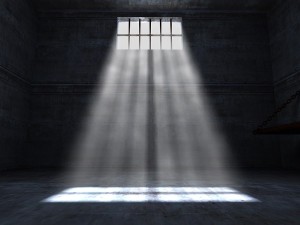Texas is executing fewer Death Row inmates than in previous years, but the Lone Star State remains at the top of the death table.
James Bigby, 61, was put to death in March. He was the fourth inmate in Texas and the sixth nationally to be executed by lethal injection this year.
Bigby apologized to the family of his victims in a statement made before his death. He said he hoped his execution would bring peace and closure to them.


He was convicted of capital murder for two killings in 1987. He shot 26-year-old Michael Trekell and then suffocated his 4-month-old son, Jayson, reported the Star-Telegram.
The report alluded to additional evidence that Bigby killed two other men — Calvin Wesley Crane and Frank “Bubba” Johnson, on the same day as he killed his first two victims. He is said to have believed they were conspiring against him in a workers’ compensation case against a former employer along with Trekell. He was not tried in relation to those homicides.
During his trial in 1991, Bigby was involved in another violent incident. Bigby grabbed a gun from behind the judge’s bench and confronted him with it in the judge’s chambers. He was captured after the judge, a bailiff and an assistant district attorney wrestled him to the ground and took the gun.
Bigby was executed for killings in Fort Worth on Dec. 23, 1987. While Trekell was in the kitchen preparing food, Bigby broke in with a shotgun and killed him.
He tried to suffocate 4-month-old Jayson with cellophane. When the child survived, he drowned the baby in the sink.
Bigby’s schizophrenia was raised by his defense during the trial.
He spent a considerable time on death row because he was granted a new sentencing trial in 2005. The original sentence was thrown out by the U.S 5th Circuit Court of Appeals because new sentencing procedures require juries to decide whether any mitigating evidence can reduce a murder conviction to a lesser sentence.
In this case, Bigby’s mental illness was the mitigating factor. When he was first sentenced to death in 1991, the jury was told it could “nullify” any such evidence.
Mental Illness and the Death Penalty
The question about whether people with mental illnesses can be legally executed is a complicated one.
The New York Times recently noted the Supreme Court has declined to shield mentally ill people from executions, saying only those who are insane cannot be executed.
However, the definition of “the insane” is defined as “people unaware of the punishment they are about to suffer and “why they are to suffer it.” It’s a narrow definition that theoretically excludes most people with a severe mental illness.
In March, a bill was introduced to the Texas legislature that would exclude defendants who can prove they were impacted by severe mental illness when they committed a capital crime from the death penalty
Mental health advocates joined forced with state Rep. Toni Rose (D) when the delegate introduced HB 3080.
If you are facing a serious offense like murder or manslaughter, it’s crucial to hire experienced criminal defense counsel. Call our Fort Worth criminal defense lawyer today for a free consultation.
Similar Posts by The Author:
Publicaciones Similares del Autor:
(682) 204-4066 We cannot receive pictures via text so please send those via email or hand deliver to our office.





